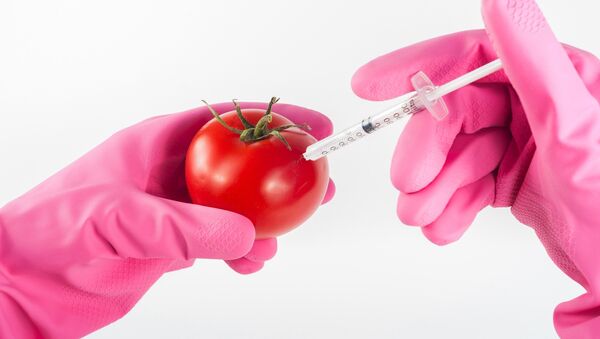The European Court of Justice ruled September 13 that Member States cannot adopt emergency measures banning genetically modified organisms (GMOs) without evidence of a "serious risk to health or the environment" — although the ruling contradicts European Union legislation.
#ECJ rules MS may not adopt emerg. measures re. GM food unless evident serious risk to health/environment https://t.co/vngAlGQB6G
— EU Court of Justice (@EUCourtPress) September 13, 2017
The precautionary principle, which presupposes scientific uncertainty about the existence of particular risks associated with GMO, was ruled to be inapplicable, as genetically modified foods have "gone through a full scientific assessment before being placed on the market."
The Case
The judgment closes a three-year long case brought by Italy — in 2013, Rome asked the European Commission to adopt emergency measures to prohibit the cultivation of genetically modified maize "MON 810" produced by seed company Monsanto, although the Commission declined on the basis of a scientific opinion by the European Food Safety Authority. The Italian government nonetheless went ahead and banned cultivation of MON 810 on its territory.
A maize famer was prosecuted in 2014 for breaching the decree, although was acquitted in 2015 and sued the government the next year for court costs and loss of income, arguing the criminal proceedings directed against him did not respect European legislation. Courts rejected his case in July.
Contradictions
The ruling arguably only increases the lack of clarity around GMOs in the EU — in 2015, the bloc passed a directive allowing states to restrict the cultivation of GMOs, which doesn't compel governments to demonstrate GMOs represent a threat to human health or the environment. Bans can be based on maintaining healthy ecosystems, biodiversity and even landscape reasons. At present, 19 EU countries have banned GMOs.
However, the ruling does reiterate the EU's controversial official position on genetically modified food — that the scientific soundness of GMOs has been proven.
The American Academy of Environmental Medicine notes several animal studies indicate serious health risks associated with GM food consumption including infertility, immune dysregulation, accelerated aging, dysregulation of genes associated with cholesterol synthesis, insulin regulation, cell signaling, and protein formation, and changes in the liver, kidney, spleen and gastrointestinal system.
#GMO labeling & ban map pic.twitter.com/YmHyOnQbxe #Monsanto #Canada #US #Health #IBS v @the_refusers
— Phree Dom🐸 (@hempoilcures) August 5, 2014
Concerns about GMOs have led dozens of nations to prohibit the cultivation of GM crops since the turn of the century — estimates suggest at least 30 countries have done so. Russia is the most populous state to ban both the cultivation and importation of GM crops — in 2014 it banned the importation of biotech crops, and their cultivation, with certain exceptions around scientific research.






